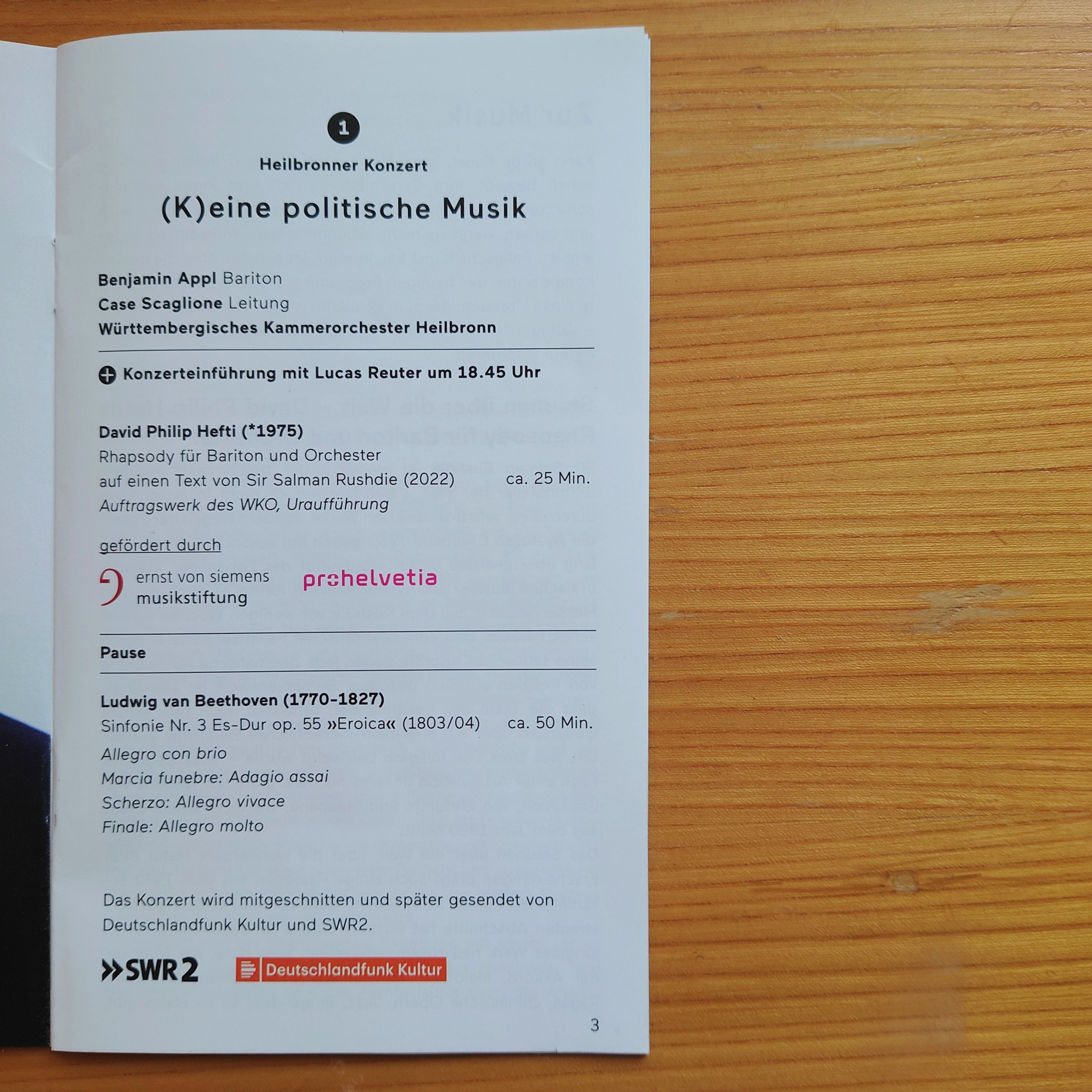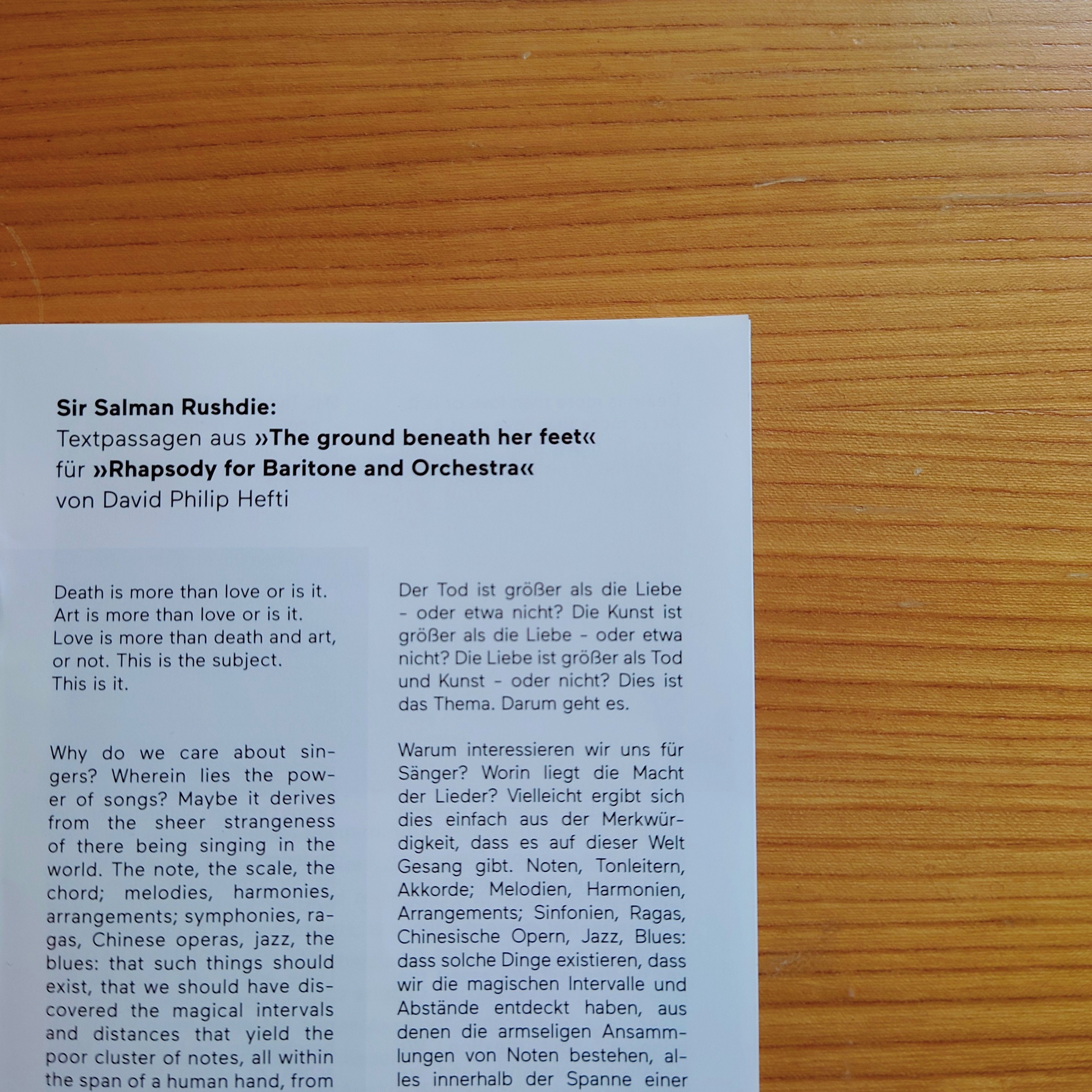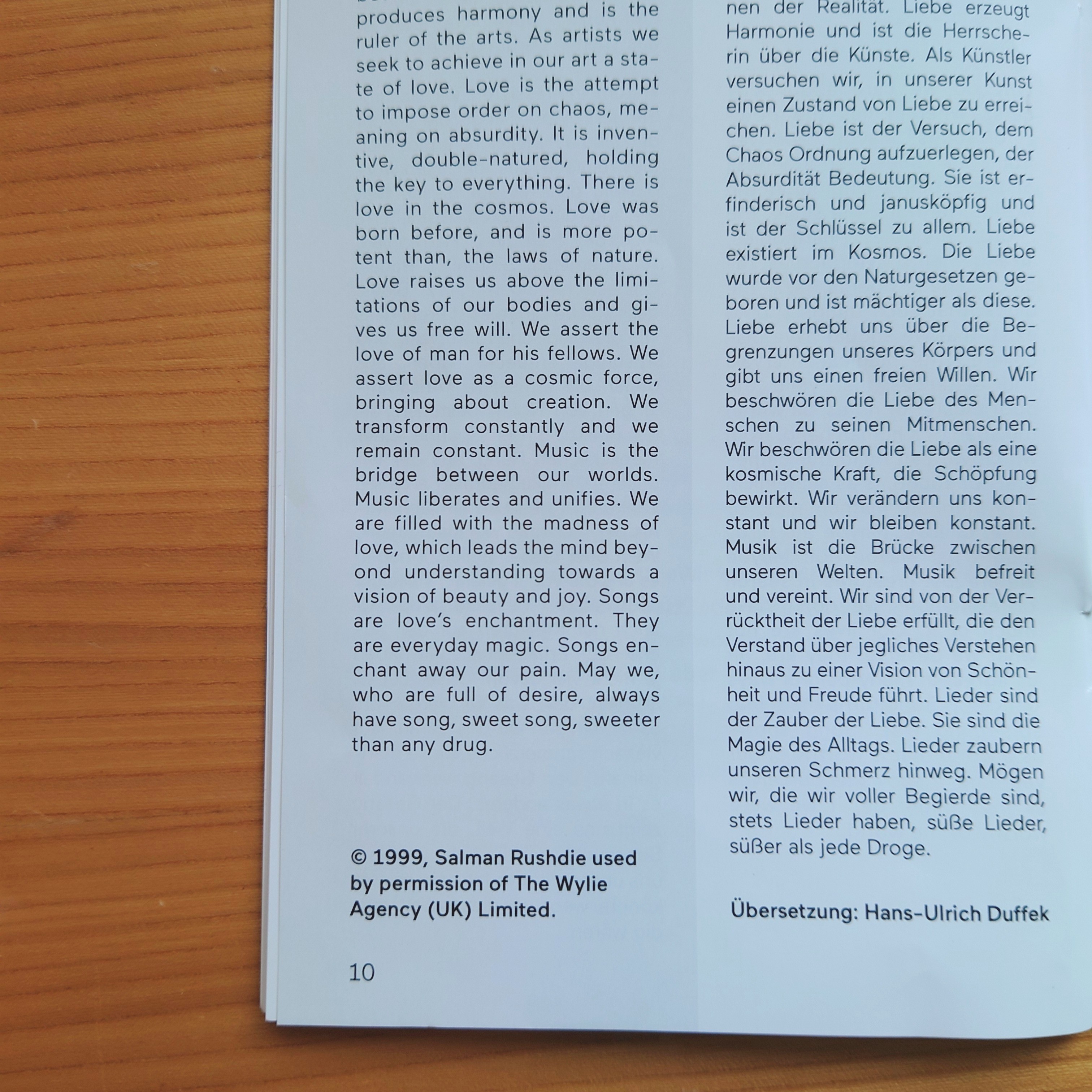“He (Salman Rushdie) sent us a text about love and art.”
Case Scaglione
Chief Conductor of the Württembergisches Kammerorchester Heilbronn
David Philip Hefti’s Rhapsody for baritone and orchestra with a text by Sir Salman Rushdie is a music composition (25 minutes) commissioned by Wüttermbergische Kammerorchestra (WKO) Heilbronn. On 21.9.2022 was the world premiere in Harmonie Heilbronn with the title: (Not) Political Music.
It was the same day when we heard the announcement of the escalation of an already damaging senseless war – the first mobilisation since World War Two. It means more troops for war and they are someone’s father, husband and son. Not only the people directly living in the war zone, worldwide people are indirectly unwillingly powerlessly affected by the current political situation.
Novelist Salman Rushdie is a direct victim of politics (fatwa) by writing books. As WKO inviting him to send a text for this particular concert, “he sent us a text about love and art” the conductor Scaglione said. The text is originated in his novel “The Ground Beneath Her Feet”, but the text that he selected for this concert is supposed to understand it independently from the novel. It is a wrestling between the importance of 3 subjects: death, art and love. But how this three subjects can be related to (Not) Political Music?


The structure of the text is as below:
- The question:
Death is more than love or is it?
Art is more than death or is it?
Love is more than death and art, or not?
Salman Rushdie - The comparison between songs (art) and lives (death). Song turns the painful deficient life into something worthy of the world. The outcome is art is more than death.
- The question (2nd time):
Death is more than love or is it?
Art is more than death or is it?
Love is more than death and art, or not? - (a) The Comparison between music (art) and love. “Music is the sound of love”, therefore, love is the reason and the key of creating art. The source of love lies in cosmos before the creation.
(b) Love can be communicate through music for “music is the bridge between our worlds” and “songs are love’s enchantment”.
Music composition do not fall into my area of expertise, but I can provide a general audience experience. Composer Hefti created a meditative atmosphere realized by the orchestra led by conductor Scaglione. The mood was changing constantly between fragment of sounds, dissonances, brittle and loud, fragile and soft.
The only flowing melody is sung by baritone Appl. Yet the melody consists of uncommon interval, also unexpected surprisingly high tone. No matter how unusual were the tone combination in our ears, Appl was mastering them with extreme calmness and his diction was clearly understandable. Every word and tone handled with meticulous care.
Appl choked the word “death, art, love” by their second appearance and before the explanation of the power of love. This reminded me of a scene in “Haroun and the Sea of Stories” by Salman Rushdie. The great storyteller Rashid had run out of story, “Ark!” that was all that came out when he supposed to do his story-talk-show on stage.
The reason for this was his son Haroun had hurt him by asking the question: “What’s the use of stories that aren’t even true?” Rashid suddenly lost the ability, the talent that he was good at. Still, Haroun loves his father and he was also the reason that Rashid come back to stories again. Without love and support, all we can produce is only “Ark!”.
This story coincidently helped me comprehend Hefti’s composition. My “theory” is strengthen by the song text “love is the attempt to impose order on chaos, meaning on absurdity”. My impression seems to be: the orchestra was representing the “absurdity”, and the human voice was representing the “meaning” as it was flowing all the time.
“Songs are love’s enchantment. They are everyday magic. Songs enchant away our pain. May we, who are full of desire, always have song, sweet song… ”
Salman Rushdie
The Rhapsody ended with the passage. To have baritone Benjamin Appl to sing about the magic of songs is more than persuasive as he himself is the greatest fan of Art Song. Last year, he even proposed the German Art Song to UNESCO as an intangible world cultural heritage. The decision has yet to be made, in the meantime, of course he is tirelessly working as the ambassador of songs by giving song recitals worldwide.
Most recently, he hosted German Radio WDR 3 Klassik, a three hours radio programme solely dedicated to Art Song. If you listen to this broadcast (link available at the end of this post), you’ll realized that he always has song for every situation.
The inspiration I have gained from this (not) political concert: No matter whether we are interested in politics or not, we are helplessly affected by the political situation. And the more disheartening the situation is, the more urgent we need to promote love and art can serve this purpose.

Note:
WDR 3 Klassik – Art Song by Benjamin Appl
https://www1.wdr.de/mediathek/audio/wdr3/klassik-forum/audio-benjamin-appl-zu-gast-im-wdr–klassik-forum-vom–100.html